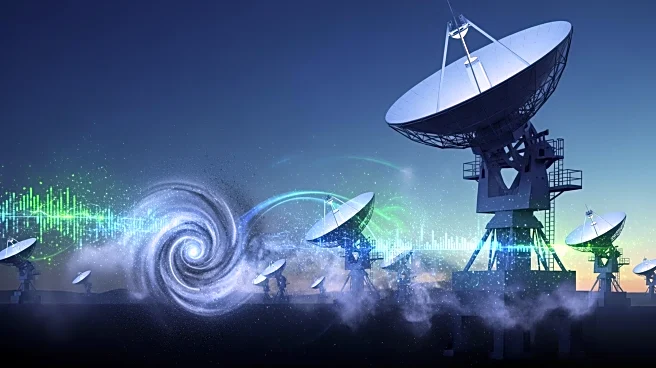Rapid Read • 8 min read
Scientists have identified July 22 as the second-shortest day of the year, with Earth completing its rotation 1.34 milliseconds faster than the usual 24-hour period. This phenomenon is attributed to variations in gravitational forces between Earth and the moon, which accelerate Earth's spin. Historically, the shortest day in the Northern Hemisphere is associated with the winter solstice, but this event affects daylight hours rather than the rotation period. Recent years have seen Earth breaking speed records, including July 5, 2024, which was the shortest day ever recorded. The trend suggests that a 'negative leap second' might be necessary to adjust atomic clocks, a concept introduced in the 1970s to account for Earth's rotational changes.
AD
The shortening of Earth's rotation has implications for timekeeping and scientific measurements. If the trend continues, adjustments to atomic clocks may be required, impacting global time standards. This phenomenon also highlights the dynamic nature of Earth's rotation, influenced by gravitational interactions and climate change. The melting of polar ice contributes to longer days by redistributing mass and affecting Earth's spin. Understanding these changes is crucial for accurate timekeeping and may influence various sectors, including technology and navigation systems that rely on precise time measurements.
If Earth's rotation continues to accelerate, scientists may need to implement a 'negative leap second' to maintain accurate timekeeping. The International Earth Rotation and Reference Systems Service monitors these changes and will decide on necessary adjustments. Further research into the effects of climate change on Earth's rotation could provide insights into long-term trends and potential impacts on global systems. Stakeholders in technology and navigation may need to prepare for adjustments in timekeeping protocols.
The phenomenon of Earth's changing rotation speed raises questions about the long-term effects of gravitational forces and climate change on planetary dynamics. The historical context of Earth's rotation, from its rapid spin billions of years ago to its current state, offers insights into the planet's evolution. The potential need for a 'negative leap second' underscores the complexity of maintaining accurate time standards in a changing world.
AD
More Stories You Might Enjoy











